
A fiery live performance recorded at Instants Chavires in 2009, reuniting Marteau Rouge's raw and electrified trio of synth, guitar, and drums with saxophonist Evan Parker, erupting in extended collective improvisations that dissolve structure in favour of texture, power, sonic friction and ecstatic freedom through waves of noise, silence, combustion, and control.
In Stock
Quantity in Basket: None
Log In to use our Wish List
Shipping Weight: 3.00 units
EU & UK Customers:
Discogs.com can handle your VAT payments
So please order through Discogs
Sample The Album:
Jean-Marc Foussat-AKS synth, vocals, toys
Jean-Francois Pauvros-electric guitars
Makoto Sato-drums
Evan Parker-tenor saxophone, soprano saxophones
Click an artist name above to see in-stock items for that artist.
UPC: 3491570055328
Label: Fou Records
Catalog ID: FR-CD 51
Squidco Product Code: 36545
Format: CD
Condition: New
Released: 2025
Country: France
Packaging: Cardboard Gatefold
Recorded on December 13, 2009 at Instants Chavires, in Montreuil, France, by Jean-Marc Foussat.
"Marteau Rouge is a trio focused on earthy, electric noise, with Pauvros's saturated, electrocuted guitar and Foussat's elusive layers and loops that merge, intertwine, or explore moving drones, murmurs, broths that Makoto Sato's wild drumsticks stir and lift, and Evan takes flight, spinning, or letting the vibrations spread out.
It is then in a moment of almost electric silence that crossed the playing space (18 minutes) like a racing car, that Evan's breath is slowly born, his notes swelling slightly like gas bubbles on the stagnant rotten water of a neglected pond, emerging from their shell oscillating around a phantom tonic. JFP's bow raises a two-note hymn in space over the electronic vibrations, a few discreet cymbal strikes contribute to the atmosphere of an unexpected sequence.
The tenor sax marks its signature for a moment. A little Fresh Air. Into the Deep. This music fills space and obliterates time, creates listening, lets silence flow, marks its territory. The wind player comments, bites the sound paste of the tenor sax which rises, spirals, swirls, turns around in front of the whistling of rotors, the crackling of machines, reacts briefly to sound signals, clings to the friction of the guitarist.
The drummer spreads his bouncing sticks on the skins, the cymbals crash, the drums resonate, the machine whistles, the sax wraps the bites and burns like flaming ribbons, buries itself in the hollow of voices coming from nowhere. A few high guitar notes oscillate, a drum reverberates rolls, electronic whistles, the psychedelic guitar saturates, fractures the sounds, shakes the electricity.
Evan Parker's sax picks up on the fly fragments played by JFP and, seizing them, multiplies his phrasing. The implacable articulations of breath overlap, twist, and fracture the illusion of melodies. Guitarist and electronics engineer blow the power station, fuses, it explodes, or three guitar notes are on par with Parkerian garlands.
The collective improvisation becomes epic, time is completely shattered, logic is put back in the locker room, the ring has become a fairground and we hear bird calls, crackles, the percussionist's beats. A noisy passage emerges, guitar - synth indescribable, outrageous, the drummer lost in a rhythm that calls everyone to order in time and the tenor sax plays along, its sound transformed at times by J-MF.
Coherent collective construction for a few minutes before everything implodes, the lava carries away the barriers, slag floats to the surface. There remain fumaroles, drum hits, shadows... Will-O'-the-Wisp, the moment of collective agility, of kinesthetic energy... of upward gravitation over the void.
Everything explodes. This music doesn't seek continuity, narrative, or logic, but allows for sonic events, contrasts, mood swings, excesses, deliriums, and vociferations in which the saxophonist leaves his mark, from which he feeds, and over which he soars to plunge. Exchanges, provocations, dreams, moments that sink, madness... The gift."- Jean-Michel Van Schouwburg
Artist Biographies
• Show Bio for Jean-Marc Foussat "Jean-Marc Foussat (born March 19, 1955 in Oran ) is a French composer and improvisational musician ( guitar, piano, live electronics ). Since the mid-1970s, Foussat had belonged to groups such as Lézard Marçio, in which he contributed the sounds of concrete music with magnetic tapes. In 1981, he finished his first solo album, Abattage, which was released in 1983. In the ensemble Marteau Rouge (with the guitarist Jean-François Pauvros and the drummer Makoto Sato), he also collaborated with Evan Parker. Together with the saxophonist Sylvain Guérineau, he formed the duo Aliquid, which also appeared with Joe McPhee ( Quod, 2014). In addition to soloprograms, he also starred with Noël Akchoté / Roger Turner, Samuel Blaser, Émilie Lesbros, Jean-Luc Cappozzo, Sophie Agnel, Daunik Lazro and numerous other musicians, as well as the Fortuna 21 Octet of Raymond Boni and the department of education psychique on." ^ Hide Bio for Jean-Marc Foussat • Show Bio for Jean-Francois Pauvros "Jean-François Pauvros is a French musician, electric guitarist and improviser born on 19 October 1947 1 in Hautmont in the North. He is the brother of Rémi Pauvros. He was a professor of French before living music, and began his career playing in balls. He was influenced by guitarists like Jimmy Page , Sonny Sharrock or Derek Bailey , and perhaps by Lightnin 'Hopkins and Charlie Christian. He participates in the Moebius group with Gaby Bizien and Philippe Deschepper. The French talent discoverer Jef Gilson recorded a first disc of Pauvros with Gaby Bizien in duet whose music is close to the British free music. He met Siegfried Kessler with whom he recorded Phoenix 14 in 1978. In 1978, at the Théâtre Mouffetard, he played with the singer Aude Cornillac and met the trumpeter Jac Berrocal, with whom he formed the Catalog group (where the drummer Gilbert Artman succeeded Jean-Pierre Arnoux ). Hathut Records releases the band's first album, Penetration. Jean-François Pauvros recorded in 1985 Le Grand Amour with guitarist Arto Lindsay (ex DNA ), vocalist Ted Milton from Blurt and drummer Terry Day ; In 1988 released Hamster Attack with drummer Julian Fenton , singer Mary Genis and saxophonists Evan Parker and Stan Sulzmann among others. His musical nomadism led him to Japan (with the poet Gozo Yoshimasu), in the United States (with Jonathan Kane and Ernie Brooks), in Chile (Ultima Round) or in Ethiopia. He played with David Holmes and Elliott Sharp , George Lewis , Jacques Thollot , Rhys Chatham and the 100 Guitars. With Mary Genis, he creates a group of Steel-drum which will also include the reggae trombonist Rico Rodriguez. He founds the Red Hammer groups with sound engineer Jean-Marc Foussat and drummer Makoto Sato , " the four daughters of industry " with Jean-François Binet, Jean-Marie Messa, Jean Nirouet, Ernie Brooks, Makoto Sato , Plays a duet with the harpist Hélène Breschand and in trio with Noël Akchoté and Jean-Marc Montera. He will participate in reading-performances with the poet Charles Pennequin and the Japanese poet Gozo Yoshimasu. He also played and released records with Daunik Lazro , Roger Turner, Keiji Haino and Kawabata Makoto (founding member of the Acid Mothers Temple Group). He is the author of, among others, the music of Charles Najman's Royal Bonbon and Pitchipoi films, Karim Dridi's Gray-Blanc and La Mechanique des femmes by Jérôme de Missolz. He works regularly with filmmaker Guy Girard." ^ Hide Bio for Jean-Francois Pauvros • Show Bio for Makoto Sato Drummer Makoto Sato has been a member of Marteau Rouge, Nuts, and has recorded with Joe McPhee, Marteau Rouge, Evan Parker, Nuts (Benjamin Duboc, Rasul Siddik, Itaru Oki, Didier Lasserre, Sato), Linda Sharrock, Itaru Oki, Mario Rechtern, Makoto Sato, Eric Zinman & Yoram Rosilio. ^ Hide Bio for Makoto Sato • Show Bio for Evan Parker "Evan Parker was born in Bristol in 1944 and began to play the saxophone at the age of 14. Initially he played alto and was an admirer of Paul Desmond; by 1960 he had switched to tenor and soprano, following the example of John Coltrane, a major influence who, he would later say, determined "my choice of everything". In 1962 he went to Birmingham University to study botany but a trip to New York, where he heard the Cecil Taylor trio (with Jimmy Lyons and Sunny Murray), prompted a change of mind. What he heard was "music of a strength and intensity to mark me for life ... l came back with my academic ambitions in tatters and a desperate dream of a life playing that kind of music - 'free jazz' they called it then." Parker stayed in Birmingham for a time, often playing with pianist Howard Riley. In 1966 he moved to London, became a frequent visitor to the Little Theatre Club, centre of the city's emerging free jazz scene, and was soon invited by drummer John Stevens to join the innovative Spontaneous Music Ensemble which was experimenting with new kinds of group improvisation. Parker's first issued recording was SME's 1968 Karyobin, with a line-up of Parker, Stevens, Derek Bailey, Dave Holland and Kenny Wheeler. Parker remained in SME through various fluctuating line-ups - at one point it comprised a duo of Stevens and himself - but the late 1960s also saw him involved in a number of other fruitful associations. He began a long-standing partnership with guitarist Bailey, with whom he formed the Music Improvisation Company and, in 1970, co-founded Incus Records. (Tony Oxley, in whose sextet Parker was then playing, was a third co-founder; Parker left Incus in the mid-1980s.) Another important connection was with the bassist Peter Kowald who introduced Parker to the German free jazz scene. This led to him playing on Peter Brötzmann's 1968 Machine Gun, Manfred Schoof's 1969 European Echoes and, in 1970, joining pianist Alex von Schlippenbach and percussionist Paul Lovens in the former's trio, of which he is still a member: their recordings include Pakistani Pomade, Three Nails Left, Detto Fra Di Noi, Elf Bagatellen and Physics. Parker pursued other European links, too, playing in the Pierre Favre Quartet (with Kowald and Swiss pianist Irene Schweizer) and in the Dutch Instant Composers Pool of Misha Mengelberg and Han Bennink. The different approaches to free jazz he encountered proved both a challenging and a rewarding experience. He later recalled that the German musicians favoured a "robust, energy-based thing, not to do with delicacy or detailed listening but to do with a kind of spirit-raising, a shamanistic intensity. And l had to find a way of surviving in the heat of that atmosphere ... But after a while those contexts became more interchangeable and more people were involved in the interactions, so all kinds of hybrid musics came out, all kinds of combinations of styles." A vital catalyst for these interactions were the large ensembles in which Parker participated in the 1970s: Schlippenbach's Globe Unity Orchestra, Chris McGregor's Brotherhood of Breath, Barry Guy's London Jazz Composers Orchestra (LJCO) and occasional big bands led by Kenny Wheeler. In the late 70s Parker also worked for a time in Wheeler's small group, recording Around Six and, in 1980, he formed his own trio with Guy and LJCO percussionist Paul Lytton (with whom he had already been working in a duo for nearly a decade). This group, together with the Schlippenbach trio, remains one of Parker's top musical priorities: their recordings include Tracks, Atlanta, Imaginary Values, Breaths and Heartbeats, The Redwood Sessions and At the Vortex. In 1980, Parker directed an Improvisers Symposium in Pisa and, in 1981, he organised a special project at London's Actual Festival. By the end of the 1980s he had played in most European countries and had made various tours to the USA, Canada, Australia, New Zealand and Japan. ln 1990, following the death of Chris McGregor, he was instrumental in organising various tributes to the pianist and his fellow Blue Notes; these included two discs by the Dedication Orchestra, Spirits Rejoice and lxesa. Though he has worked extensively in both large and small ensembles, Parker is perhaps best known for his solo soprano saxophone music, a singular body of work that in recent years has centred around his continuing exploration of techniques such as circular breathing, split tonguing, overblowing, multiphonics and cross-pattern fingering. These are technical devices, yet Parker's use of them is, he says, less analytical than intuitive; he has likened performing his solo work to entering a kind of trance-state. The resulting music is certainly hypnotic, an uninterrupted flow of snaky, densely-textured sound that Parker has described as "the illusion of polyphony". Many listeners have indeed found it hard to credit that one man can create such intricate, complex music in real time. Parker's first solo recordings, made in 1974, were reissued on the Saxophone Solos CD in 1995; more recent examples are Conic Sections and Process and Reality, on the latter of which he does, for the first time, experiment with multi-tracking. Heard alone on stage, few would disagree with writer Steve Lake that "There is, still, nothing else in music - jazz or otherwise - that remotely resembles an Evan Parker solo concert." While free improvisation has been Parker's main area of activity over the last three decades, he has also found time for other musical pursuits: he has played in 'popular' contexts with Annette Peacock, Scott Walker and the Charlie Watts big band; he has performed notated pieces by Gavin Bryars, Michael Nyman and Frederic Rzewski; he has written knowledgeably about various ethnic musics in Resonance magazine. A relatively new field of interest for Parker is improvising with live electronics, a dialogue he first documented on the 1990 Hall of Mirrors CD with Walter Prati. Later experiments with electronics in the context of larger ensembles have included the Synergetics - Phonomanie III project at Ullrichsberg in 1993 and concerts by the new EP2 (Evan Parker Electronic Project) in Berlin, Nancy and at the 1995 Stockholm Electronic Music Festival where Parker's regular trio improvised with real-time electronics processed by Prati, Marco Vecchi and Phillip Wachsmann. "Each of the acoustic instrumentalists has an electronic 'shadow' who tracks him and feeds a modified version of his output back to the real-time flow of the music." The late 80s and 90s brought Parker the chance to play with some of his early heroes. He worked with Cecil Taylor in small and large groups, played with Coltrane percussionist Rashied Ali, recorded with Paul Bley: he also played a solo set as support to Ornette Coleman when Skies of America received its UK premiere in 1988. The same period found Parker renewing his acquaintance with American colleagues such as Anthony Braxton, Steve Lacy and George Lewis, with all of whom he had played in the 1970s (often in the context of London's Company festivals). His 1993 duo concert with Braxton moved John Fordham in The Guardian to raptures over "saxophone improvisation of an intensity, virtuosity, drama and balance to tax the memory for comparison". Parker's 50th birthday in 1994 brought celebratory concerts in several cities, including London, New York and Chicago. The London performance, featuring the Parker and Schlippenbach trios, was issued on a highly-acclaimed two-CD set, while participants at the American concerts included various old friends as well as more recent collaborators in Borah Bergman and Joe Lovano. The NYC radio station WKCR marked the occasion by playing five days of Parker recordings. 1994 also saw the publication of the Evan Parker Discography, compiled by ltalian writer Francesco Martinelli, plus chapters on Parker in books on contemporary musics by John Corbett and Graham Lock. Parker's future plans involve exploring further possibilities in electronics and the development of his solo music. They also depend to a large degree on continuity of the trios, of the large ensembles, of his more occasional yet still long-standing associations with that pool of musicians to whose work he remains attracted. This attraction, he explained to Coda's Laurence Svirchev, is attributable to "the personal quality of an individual voice". The players to whom he is drawn "have a language which is coherent, that is, you know who the participants are. At the same time, their language is flexible enough that they can make sense of playing with each other ... l like people who can do that, who have an intensity of purpose." " ^ Hide Bio for Evan Parker
8/5/2025
Have a better biography or biography source? Please Contact Us so that we can update this biography.
8/5/2025
Have a better biography or biography source? Please Contact Us so that we can update this biography.
Have a better biography or biography source? Please Contact Us so that we can update this biography.
8/5/2025
Have a better biography or biography source? Please Contact Us so that we can update this biography.
Track Listing:
1. Air Frais 26:24
2. Into The Deep 34:35
3. Will-O'-The-Wisp 7:19
Improvised Music
Free Improvisation
Electro-Acoustic
Electro-Acoustic Improv
European Improvisation, Composition and Experimental Forms
London & UK Improv & Related Scenes
Quartet Recordings
Parker, Evan
Staff Picks & Recommended Items
New in Improvised Music
Recent Releases and Best Sellers
Search for other titles on the label:
Fou Records.


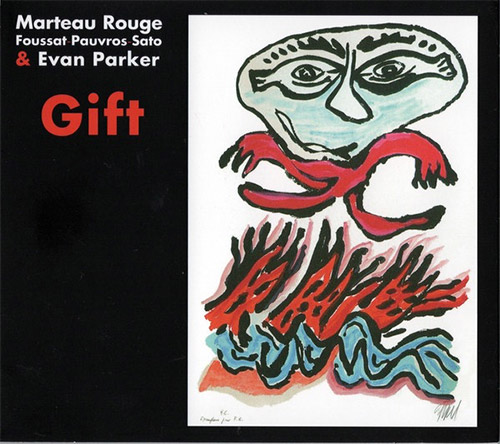

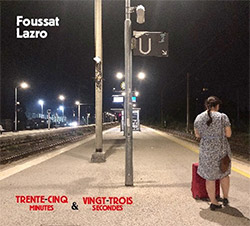


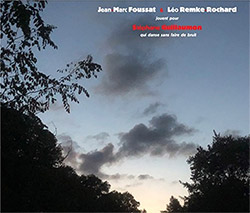

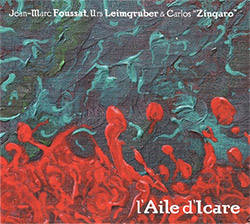
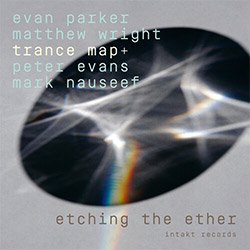



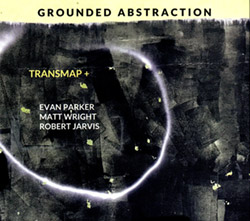
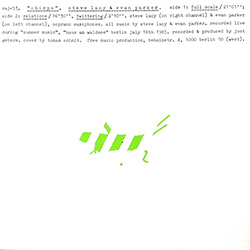
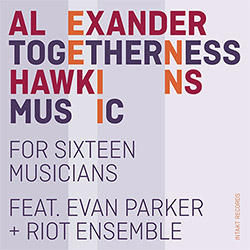



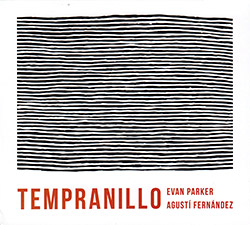
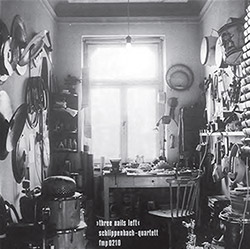
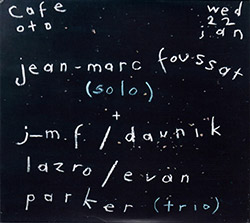


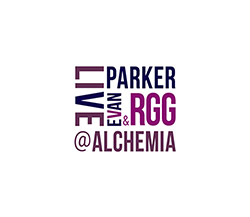
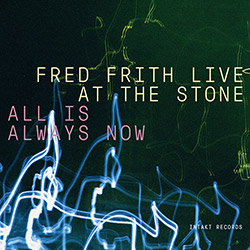
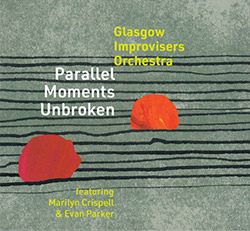
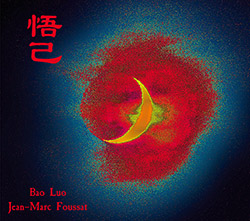





![Jaeger, Kassel: Fernweh [VINYL 2 LPs]](https://www.teuthida.com/productImages/misc4/36541.jpg)

![Sun Ra: Nuits de la Fondation Maeght [4 CD BOX SET]](https://www.teuthida.com/productImages/misc4/36112.jpg)
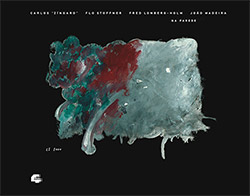


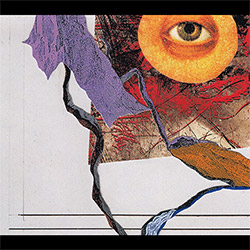

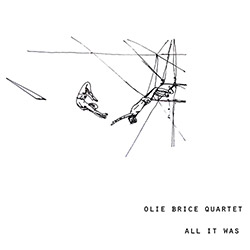
![Musicworks Magazine: #151 Summer 25 [MAGAZINE + CD]](https://www.teuthida.com/productImages/misc4/36559.jpg)

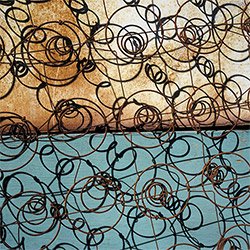
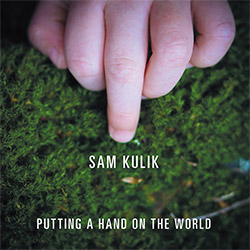





![BlueRing Improvisers: Materia [2 CDs]](https://www.teuthida.com/productImages/misc4/36513.jpg)







![Wheelhouse (Rempis / Adasiewicz / McBride): House And Home [VINYL]](https://www.teuthida.com/productImages/misc4/36462.jpg)

![Parker, Evan / Jean-Marc Foussat: Insolence [VINYL]](https://www.teuthida.com/productImages/misc4/36398.jpg)










![Deupree, Jerome / Sylvie Courvoisier / Lester St. Louis / Joe Morris: Canyon [2 CDs]](https://www.teuthida.com/productImages/misc4/36404.jpg)


![Eventless Plot | Haarvol: The Subliminal Paths [CASSETTE + DOWNLOAD]](https://www.teuthida.com/productImages/misc4/36232.jpg)


![+DOG+: The Light Of Our Lives [2 CDs]](https://www.teuthida.com/productImages/misc4/36009.jpg)


![Eternities: Rides Again [CASSETTE]](https://www.teuthida.com/productImages/misc4/36247.jpg)

![Lopez, Francisco: Untitled (2021-2022) [2 CDs]](https://www.teuthida.com/productImages/misc4/36438.jpg)






![Money : Money 2 [2 CDs]](https://www.teuthida.com/productImages/misc4/35894.jpg)




![Klinga, Erik: Elusive Shimmer [VINYL]](https://www.teuthida.com/productImages/misc4/36258.jpg)
![CHANGES TO blind (Phil Zampino): Volume 9 - I Wave on a Fine Vile Mist [CD + DOWNLOAD]](https://www.teuthida.com/productImages/misc4/36061.jpg)

![Wallmart / Rubbish: Asset Protection [split CD]](https://www.teuthida.com/productImages/misc4/35900.jpg)


![Brown, Dan / Dan Reynolds: Live At The Grange Hall [unauthorized][CASSETTE]](https://www.teuthida.com/productImages/misc4/36245.jpg)








![Palestine, Charlemagne / Seppe Gebruers: Beyondddddd The Notessssss [VINYL]](https://www.teuthida.com/productImages/misc4/36206.jpg)
![Palestine, Charlemagne / Seppe Gebruers: Beyondddddd The Notessssss [NEON GREEN VINYL]](https://www.teuthida.com/productImages/misc4/36207.jpg)

![Laubrock, Ingrid: Purposing The Air [2 CDs]](https://www.teuthida.com/productImages/misc4/35639.jpg)

![Yoko, Ono / The Great Learning Orchestra: Selected Recordings From Grapefruit [2 CDs]](https://www.teuthida.com/productImages/misc4/35841.jpg)









![Zorn, John / JACK Quartet: The Complete String Quartets [2 CDs]](https://www.teuthida.com/productImages/misc4/35609.jpg)

![Lonsdale, Eden: Dawnings [2 CDs]](https://www.teuthida.com/productImages/misc4/35480.jpg)

![Sorry For Laughing (G. Whitlow / M. Bates / Dave-Id / E. Ka-Spel): Rain Flowers [2 CDS]](https://www.teuthida.com/productImages/misc4/35985.jpg)

![Rolando, Tommaso / Andy Moor : Biscotti [CASSETTE w/ DOWNLOADS]](https://www.teuthida.com/productImages/misc4/36106.jpg)


![Electric Bird Noise / Derek Roddy: 8-10-22 [CD EP]](https://www.teuthida.com/productImages/misc4/35970.jpg)








![Elephant9 : Mythical River [VINYL]](https://www.teuthida.com/productImages/misc4/34624.jpg)



![Elephant9 with Terje Rypdal: Catching Fire [VINYL 2 LPs]](https://www.teuthida.com/productImages/misc4/35355.jpg)
![Deerlady (Obomsawin, Mali / Magdalena Abrego): Greatest Hits [VINYL]](https://www.teuthida.com/productImages/misc4/34876.jpg)







![Surplus 1980: Illusion of Consistency [CD]](https://www.teuthida.com/productImages/misc4/35069.jpg)
![Staiano, Moe: Away Towards the Light [VINYL + DOWNLOAD]](https://www.teuthida.com/productImages/misc4/35037.jpg)
![Coley, Byron: Dating Tips for Touring Bands [VINYL]](https://www.teuthida.com/productImages/misc4/17906.jpg)

![Lost Kisses: My Life is Sad & Funny [DVD]](https://www.teuthida.com/productImages/misc4/lostKissesDVD.jpg)